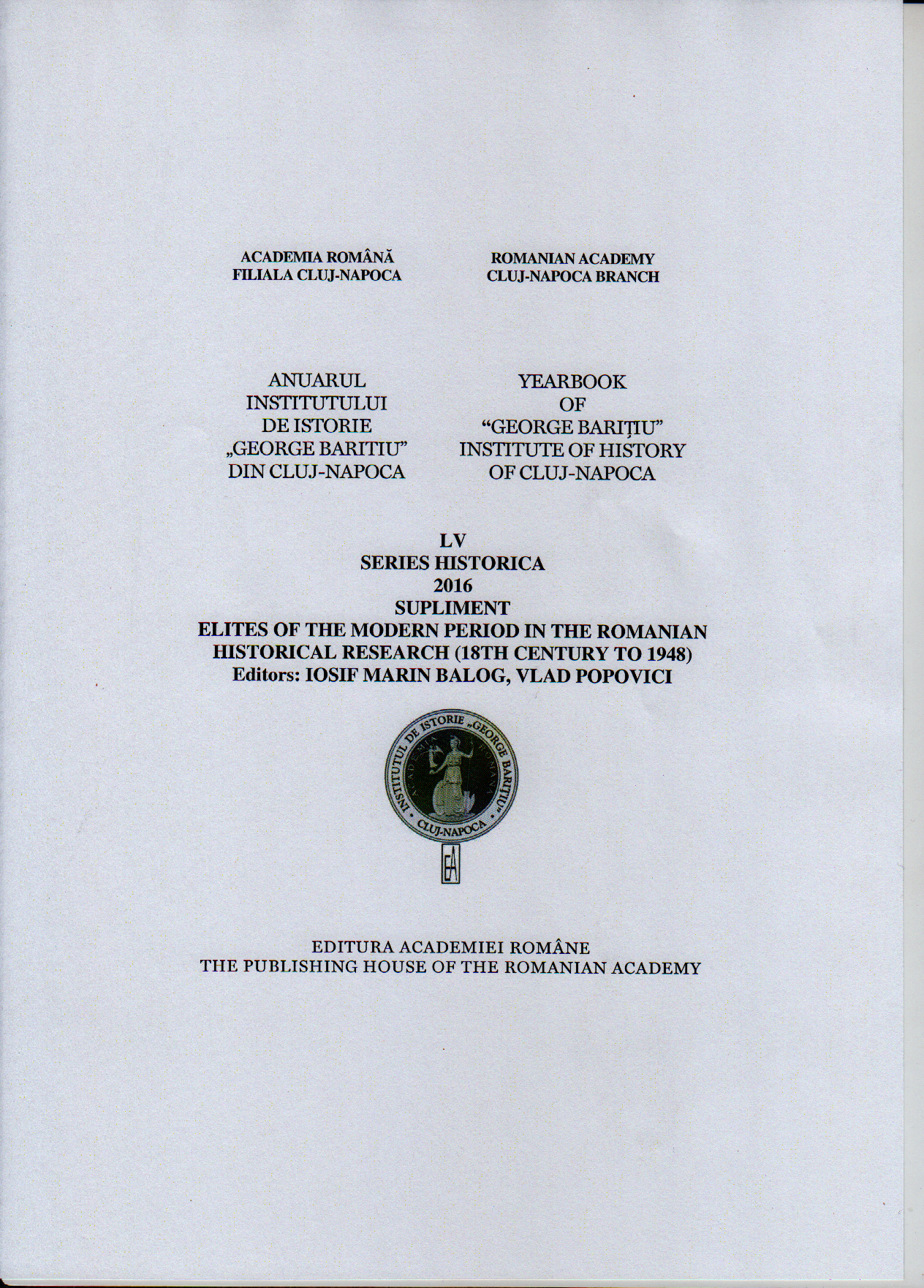Priestly Dynasties: Recruitment Pools for the Greek-Catholic Clerical Elite.
Case Study: The Dioceses of Oradea and Gherla (1853-1918)
Priestly Dynasties: Recruitment Pools for the Greek-Catholic Clerical Elite.
Case Study: The Dioceses of Oradea and Gherla (1853-1918)
Author(s): Mirela Popa AndreiSubject(s): History, Modern Age, Recent History (1900 till today), Theology and Religion, 19th Century, Pre-WW I & WW I (1900 -1919)
Published by: Editura Academiei Române
Keywords: Priestly dynasties; clerical elite; the Romanian Greek-Catholic Church; recruitment; modern Romanian society of Transylvania.
Summary/Abstract: For the period under study, what became evident in the Romanian Greek-Catholic Church was the continuing trend of priestly dynasties, in which the sons carried further the mission of their fathers and grandfathers. The difference was that by the second or third generation, the sons of priests were prepared to operate at a higher level, assuming leadership roles in the ecclesiastical administration. Our paper aims to present a case study referring to the social origins of the higher clergy in the Greek-Catholic Dioceses of Oradea and Gherla. In this sense, the prosopographical analysis of the published and unpublished documents suggests the existence of genuine “priestly dynasties” in the area of the two dioceses, whence a good part of the local cultural and ecclesiastical elite emerged. We should note, in this regard, that 7 of the 28 canons who served in the Episcopal Cathedral Chapter of Oradea from 1853 to 1918 were of priestly descent, while in the Diocese of the Gherla the percentage was higher: 12 of the 20 capitular canons came from the ranks of the clergy.Significantly, many of the capitular canons who served in the two Greek-Catholic dioceses and were of unquestionable clerical descent became leading representatives of the Transylvanian cultural elite. Among these should be mentioned just a few names, such as Ioan Alexi, Iosif Papp-Szilágyi, Augustin Lauran, Ioan Papiu, Macedon Pop, Mihail Şerban, etc. This was possible thanks to the intellectual training they had received, the work they had accomplished and their degree of involvement in the process of societal enlightenment, in their capacity as teachers, as members of Astra, or as authors of scientific works and textbooks.
Journal: Anuarul Institutului de Istorie »George Bariţiu« - Series HISTORICA - Supliment
- Issue Year: LV/2016
- Issue No: LV/Sup
- Page Range: 87-104
- Page Count: 20
- Language: English

